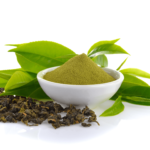Health Benefits of Matcha Tea: Nutrition, Uses, and Side Effects

Matcha is a powdered green tea that has been used for centuries in traditional Japanese tea ceremonies. In recent years, it has gained popularity worldwide for its impressive health benefits.
This article explores the history of matcha, the nutrients it contains, and the many ways it can benefit your health.
Whether you're a tea enthusiast or simply looking to improve your overall well-being, matcha could be a great addition to your daily routine.
What Is Matcha?
Matcha is a finely ground powder made from specially grown green tea leaves. Unlike regular green tea, where the leaves are steeped and discarded, matcha is consumed whole, providing a more concentrated dose of nutrients. It has a vibrant green color and a slightly bitter, earthy taste.
This tea is rich in antioxidants, especially catechins, and provides a gentle caffeine boost alongside L-theanine, an amino acid that promotes relaxation and mental clarity. Together, these compounds make matcha a unique and powerful health beverage.
The History of Matcha
Matcha dates back to the Tang Dynasty in China during the 7th century. It was later brought to Japan by Buddhist monks in the 12th century, where it became central to traditional tea ceremonies.
During the 16th century, Japanese tea master Sen no Rikyu formalized the tea ceremony as an art of simplicity and mindfulness, with matcha at its core. By the Edo period, it was considered a luxury item reserved for the upper class. Today, matcha continues to be celebrated worldwide for both its cultural value and health benefits.
Nutrients in Matcha
Matcha offers a wide array of beneficial nutrients:
Antioxidants: Especially catechins, which help combat free radicals.
L-theanine: Promotes relaxation and focus without drowsiness.
Caffeine: Offers a sustained energy boost without the crash.
Vitamins and minerals: Including vitamin C, selenium, zinc, and chromium.
Fiber: Supports digestion and regularity.
Its combination of nutrients helps reduce inflammation, improve immunity, and support metabolic health.
Health Benefits of Matcha
Drinking matcha regularly may contribute to:
Improved mental clarity and sustained focus
Enhanced immune system support
Reduced inflammation and detoxification through chlorophyll
Better digestion and healthier skin
Natural energy boost without jitters
These benefits make matcha a versatile drink that supports both mental and physical well-being.
How to Use Matcha
There are many creative ways to enjoy matcha:
Traditional matcha tea: Whisked with hot water until frothy
Matcha latte: Mixed with milk or plant-based alternatives
Smoothies and oatmeal: For a nutrient boost
Baking: Used in cookies, cakes, and muffins
Savory recipes: Added to sauces, soups, or marinades
For best results, choose high-quality organic matcha and store it in a cool, dark place. Consume within 1–2 months of opening for maximum freshness.
Possible Side Effects of Matcha
While matcha is generally safe for most people, potential side effects include:
Digestive issues (e.g., upset stomach, bloating) due to tannins and caffeine
Increased heart rate or blood pressure in caffeine-sensitive individuals
Possible interaction with medications such as blood thinners
To reduce risks:
Limit to 1–2 servings per day
Drink plenty of water
Consult your healthcare provider if you have any medical conditions or are taking medications
Conclusion
Matcha is a powerful green tea packed with antioxidants, vitamins, and amino acids that support overall health. From boosting energy and focus to enhancing immunity and skin health, matcha is a simple yet effective addition to a healthy lifestyle. As with any supplement, moderation is key. Enjoy matcha as a drink, in recipes, or in smoothies—and feel the difference for yourself.
Leave a Reply




Related Posts